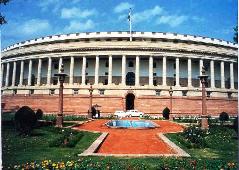 With the Supreme Court upholding the executive's right to decide how to go about allotting natural resources, the United Progressive Alliance government's policy legacy has got a boost.
With the Supreme Court upholding the executive's right to decide how to go about allotting natural resources, the United Progressive Alliance government's policy legacy has got a boost.
Although the apex court's opinion on the Presidential reference comes at a time when the floppy bidding route for coal blocks is being criticised, it will not come in the way of allocation of natural resources through auctioning.
Auctioning of the telecom spectrum is not just a way of distributing licences, but a good source of income for the exchequer.
Besides, with the rules for auctioning of coal blocks having been notified, the resource will no longer come free for captive use.
The amended Mines and Mineral (Development and Regulation) Act, 1957, will make bidding applicable for other natural resources as well.
The apex court's opinion should be seen in the light of the public trust doctrine, which has often been invoked in environment cases, but was extended to natural resources in 2010 when it delivered a verdict in the Reliance Industries Ltd versus Reliance Natural Resources Ltd case.
The doctrine based on common law principles lays down that certain resources such as air, sea, waters and forests have such a great importance to the people as a whole that it would be unfair to make them a subject of private ownership.
"Said resources being a gift of nature (they) should be made freely available to everyone irrespective of the status in life.
The doctrine enjoins upon the government to protect the resources for the enjoyment of the general public rather than to permit them -- use for private ownership or commercial purposes," the Supreme Court verdict had said while citing the MC Mehta versus Kamal Nath verdict of 1997.
The court sees profit maximisation as untenable under the Right to Equality granted under the Constitution. "Any process of allocation has to stand the test of right to equality.
"There was an element of discretion in the case of 2G spectrum allocation that allowed a few companies to get benefit of a particular date and time," said Gokul Chaudhuri, partner, BMR Advisors.
Although the government has been taking the plea that auctioning of natural resources will push up price of end-use price, transparency comes only from a bidding process.
"While no one can quarrel with the court's logic that policy making is the domain of the executive, there are serious worries about the executive treating this as a carte blanche.
"In the 2G and coal scams, the matter in controversy is more of abuse of process than the choice of process itself.
"Similarly, the CAG assessment was essentially aimed at highlighting the abuse of the process in the two cases, but through the arguable method of auction," said Ramesh Vaidyanathan, partner, Advaya Legal.
Auctioning has its own pitfall of pushing up costs.
"It is an option when the outputs have a large commercial market or are exported. For public goods or where we wish to attract investment and create productive capacity, there are better routes than auctions," said Kameswara Rao, energy and mining practice leader, PricewaterhouseCoopers.








